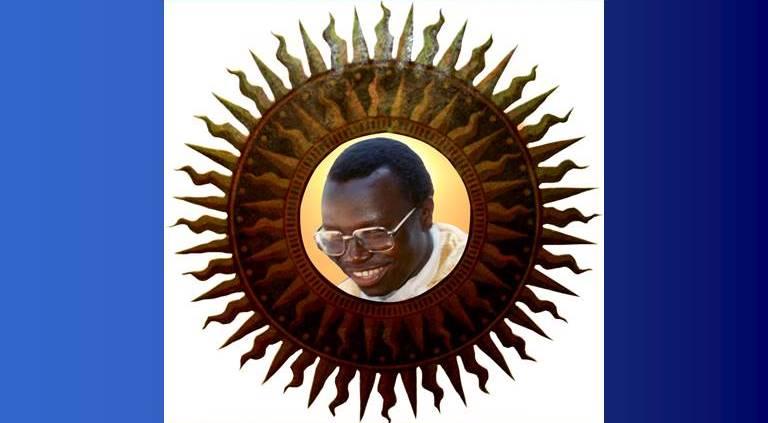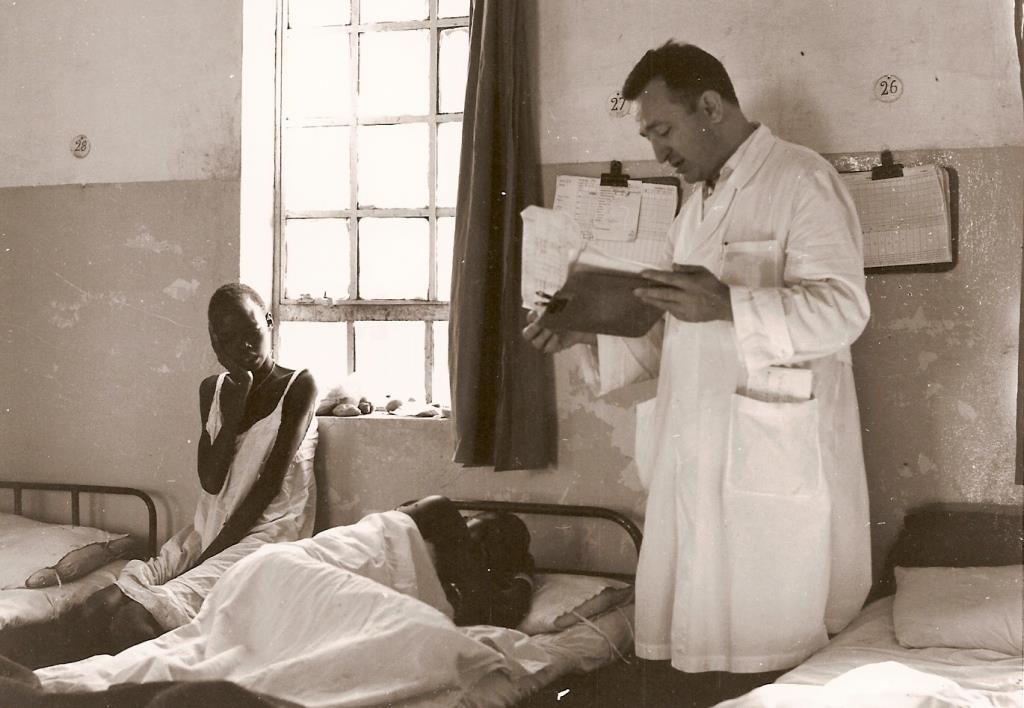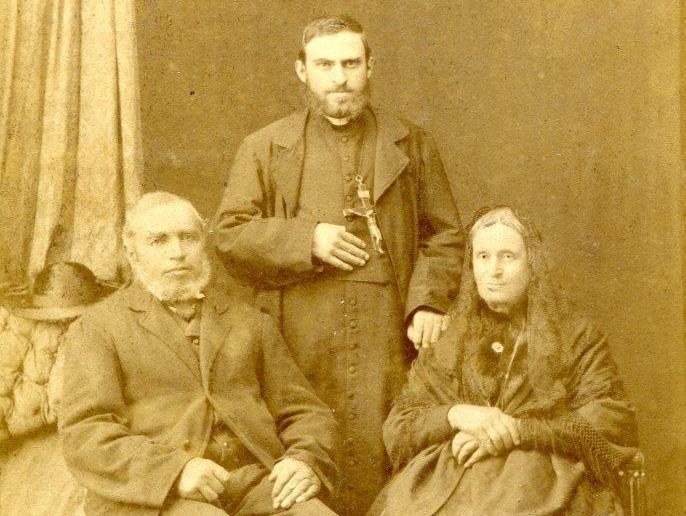Daniel Comboni
Comboni Missionaries
Institutional area
Other links
Newsletter
Fr. Mario Mantovani (18.12.1919 – 14.08.2003)
Fr. Mario Mantovani was born at Orzinuovi, in the region of Brescia, on 18 December 1919. He was ordained priest in 1946. After 11 years of service in Italy, in 1947 he left for Uganda. He remained in Karamoja till his tragic death on the eve of the feast of Assumption, 14 August 2003. He gave his missionary service in the missions of Morulem (1957-1959), Kaabong (1958-1960, 1982-1983), Nabilatuk (1960-1965), Losilang (Kotido) (1966-1970), Karenga (1970-1975, 1978-1981, 1983-1985), Matany (1976-1978), Naoi (1986-1995), Loyoro (1996-2002), Kapedo (2002-2003).
Fr. Mario was nicknamed by the Karimojong “Apalongor”, which means, “bull of an ash-grey colour”. The Karimojong, nomadic shepherds, give everyone a nickname taken from the names they use to describe a characteristic of a head of cattle. Fr. Mario was a kind, friendly, generous, zealous and very human. He was also an excellent cook. On special occasions he was the one to work around the kitchen stove preparing something nice. His fish and pasta were delicious.
Fr. Mario was a man of prayer, always available and very understanding. One felt comfortable in his company. He would adapt himself to any situation. He could get along with anybody, but especially with those who were open and not too demanding, and particularly with young people. Lately at Kapedo he had a good relationship, based on trust and respect, with the Ugandese Bro. Godfrey Kiryowa - who would be killed together with him - almost as the last sign of the talent Fr. Mario had to create communion with all.
Fr. Mario knew well the Ngakarimojong language. He had written two grammars and a study on the verbs of Ngakarimojong. He was very happy to teach the language to the newcomers, wondering at the fact that some young missionary had no idea about the difference between a verb and an adverb, between a conjunctive and a conditional. When preaching he would be overcome with enthusiasm and raise his voice carried away by passion and fervour. On those occasion the Karimojong would look at him with curiosity, smiling at his funny way of talking. His enthusiastic way to express love for Jesus Christ must have seemed strange to them.
His ability to create friendship with people was shown by accepting tobacco from the Karimojong and by sharing with them some of his own, thus breaking down barriers. He always carried tobacco around with him in a small container. He knew also how to appreciate a glass of good wine or beer.
Fr. Mario was never discouraged by the difficulty of working among the Karimojong. He was basically an optimistic person. He has always a source of encouragement and of hope to the young missionaries of Karamoja. Fr. Mario always made himself available to go whenever he was needed, even though, humanly speaking, he might not have been enthusiastic about it. And this is how he accepted his last assignment: the mission of Kapedo. At his age that mission appeared to him to be a bit far away. He had discreetly expressed his desire to be assigned nearer, sooner or later, to the main centre of Kotido. In any case, he humbly and courageously accepted also this last challenge.
Fr. Mario was working in an area bordering with Sudan. Here live the Dodoth people. In the south of the district live the Jie people, a tribe traditionally clashing with the Dodoth over pastureland for their cattle. Fr. Mario had been for the three weeks at Kanawat (near Kotido), the mother mission of the Jie, to recover from malaria. Bro. Godfrey had gone to fetch him from Kapedo on 14 August. They left from Kanawat at 9 a.m. In the Kopoth area, which lies on the border between the Dodoth and the Jie, there were over 300 warriors armed with guns roaming about, as there had been a cattle raid carried out by the Dodoth together with some Sudanese. It seems that the Dodoth had been unsuccessful in the raid.
Around 10 a.m. our two confreres were driving through the Kopoth area when a group of Dodoth in retreat shot at the driver, Bro. Godfrey, who died instantly. A young man who was in the car with them managed to control the vehicle until it stopped. He then smashed the car window and succeeded to escape, leaving in the car Fr. Mario who was still alive. Fr. Mario got out of the car in the hope of getting away and hide in the bush.
Fr. Chris A. Z. Aleti, the only Comboni Missionary then at Kanawat, on the evening of the same day sent a radio message to Kapedo to know whether the two confreres had arrived. When he heard that they had not yet arrived, he informed the police, but these told him that it was not prudent to go and search for them at night. The following day, 15 August, Fr. Chris set off, following the road taken by the two confreres. He found the car with the body of Bro. Godfrey and brought it straight away back to the mission of Kanawat. There was no trace of Fr. Mario. Accompanied by an escort of soldiers, Fr. Chris set off to search for him. From the place of the ambush they followed the marks left by small boots that looked like those of Fr. Mario, in the hope of finding him. Instead these tracks led them to the hut of the suspected killer who seemed to have shot him and put on his boots. Shortly afterwards they found the body of Fr. Mario riddled with bullets. The suspected killer was imprisoned in Kotido’s police station, but a couple of days later, while trying to escape, was shot dead.
Fr. Mario was buried next to the church of Kanawat.
On 19 August Fr. Guido Oliana, the provincial of Uganda and on holiday in Italy, presided over the funeral Mass at Orzinuovi, Fr. Mario’s hometown and where he was well known. The church was packed with people. Fr. Guido thus explained the meaning of Fr. Mario’s death: “In the faith today we have to celebrate Fr. Mario’s evangelising victory in Christ. He could not have concluded in a more meaningful manner his mission among the Karimojong.” The readings used in the service were an excellent commentary to the evangelical and missionary meaning of Fr. Mario’s death: “Who will separate us from the love of Christ? Tribulations, anxieties, persecutions, lack of food or clothes, danger, the sword – and we could add – “the gun”? In all this we are more than winners by virtue of him who loved us.” Fr. Mario shares in Christ’s victory. Let us hope and pray that the blood he has shed will produce fruits in the difficult task of evangelising Karamoja. The Karimojong culture believes in sacrifices, so much so that, before setting off on a cattle raid, the Karimojong offer a head of cattle in sacrifice and, occasionally, even a human sacrifice. In the light of faith and of the Gospel, now it will be the sacrifice of Fr. Mario who will earn the Karimojong not heads of cattle, but their allegiance to Christ and to the Church.
With the killing of Fr. Mario and of Bro. Godfrey, the number of Comboni Missionaries who have shed their blood in Uganda has risen to 13. During the closing days of the 2000 Intercapitular Assembly Fr. Raffaele Di Bari, another Comboni Missionary in Uganda, was shot and burned to death at Pajule (Acholiland). Now, at the start of the XVI General Chapter, Fr. Mario Mantovani and Bro. Godfrey Kiryowa have been killed at Kopoth. I think the Lord by this event wants to send us a message about the true Comboni missionary spirituality. (Fr. Guido Oliana)




